The Jewish presence in Marseille dates back at least to the 6th century as is attested by Grégoire de Tours, but probably dates back to the Roman Empire. One of their main commercial activities was to act as an intermediary between Gaul and the Levant. In 576, the Jews of Clermont, victims of the intolerance of Bishop Avitus, took refuge in Marseille, enlarging the Phocaean community.
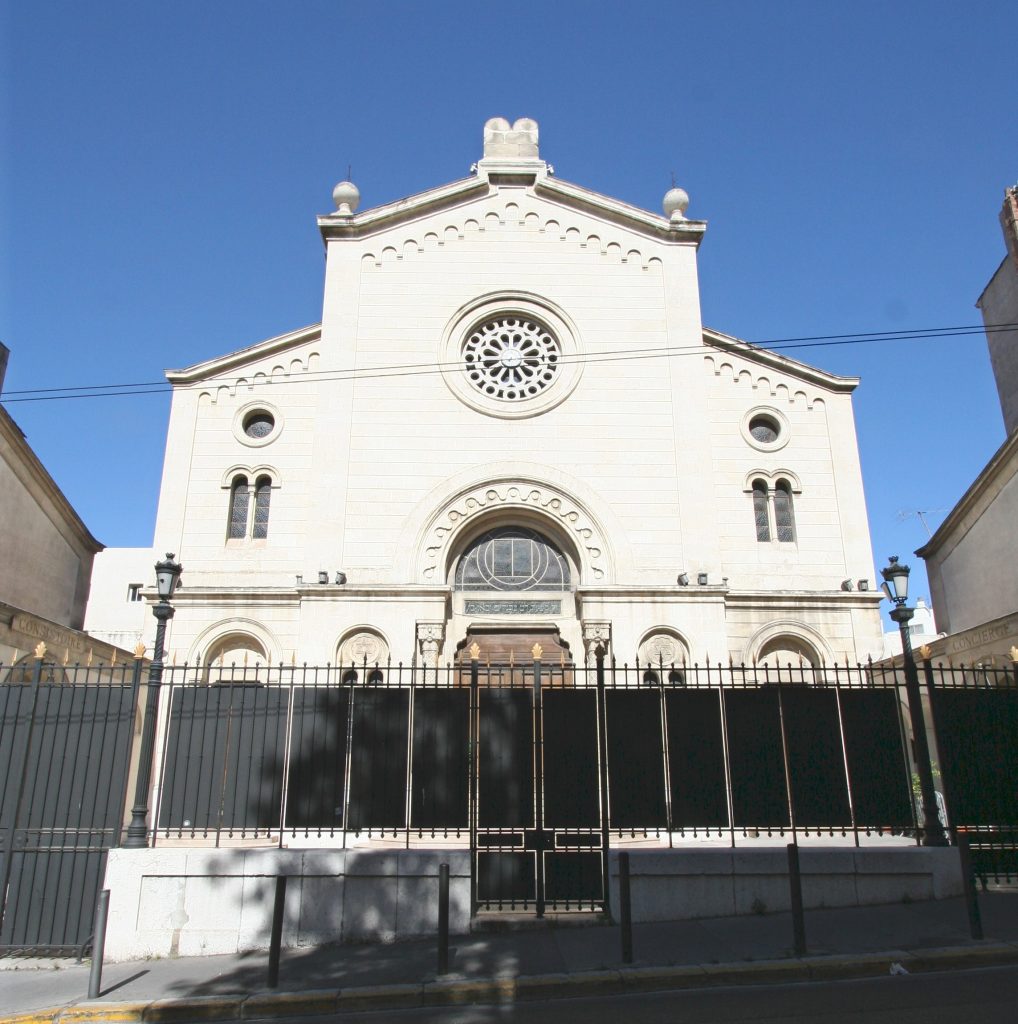
In the 12th century, two Marseilles communities developed. The first in the lower part of the city, under the authority of the viscount, and the second in the heights, under the dominion of the cardinal.
The traveler Benjamin of Tudela refers to these communities in his accounts. According to him, yeshivot continued to teach in the upper part of the city, and he emphasized their influential presence, dubbing Marseille the city of gaonim (scholars). An opinion shared by Maimonides in 1194, when he noted the presence of great scholars in Marseille.
The lower part of the city, close to the port, favored the influx of merchants, although Jews did little work in the maritime sector. Although they were granted citizen status in 1257, the Jews of Marseille were subject to considerable restrictions.
In the 14th century, the two communities unified, and restrictions were relaxed. There were now three synagogues and a mikveh. Angevin policy enabled the Jews of Provence to flourish, particularly in Marseille. At the time, Jews were very well integrated into the city, taking part in both craft and agricultural production, as well as in coral and livestock farming and in the creation of bastides.
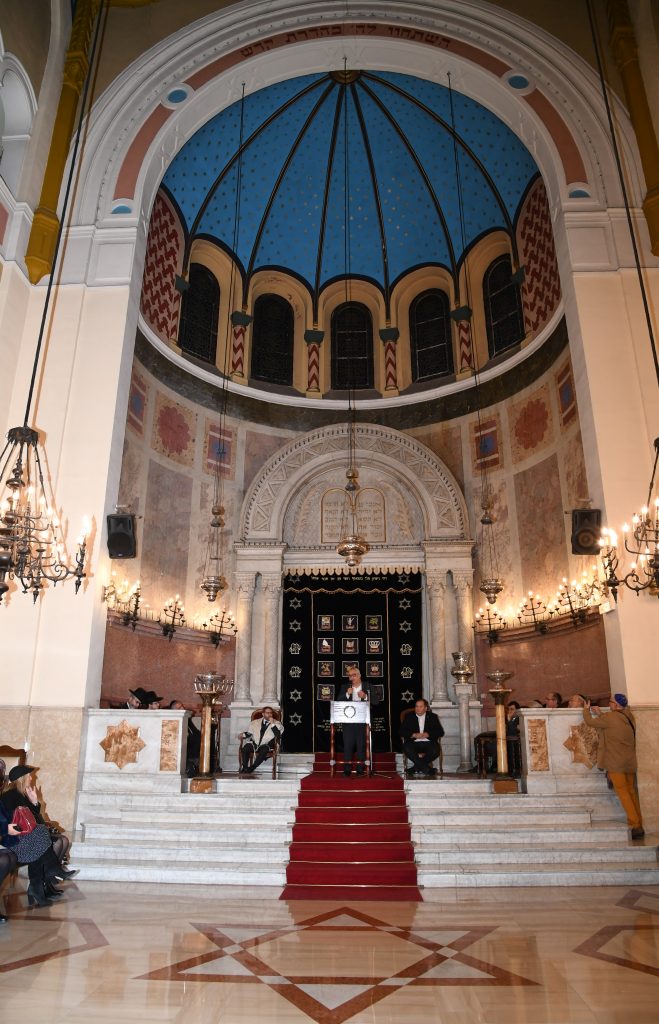
In 1484-1485, the Jewish quarter was attacked. Looting and murder led many to flee. Emigration was limited by the appeasement introduced by the municipality the following year and, a few years later, by the arrival of Jews from Spain as a result of the Inquisition. Nevertheless, a notice of expulsion from Provence was issued in 1500-1501, accompanied by a consequent wave of conversions. As a result, there was no organized Jewish life in Marseille until the French Revolution and the emancipation of the Jews of France.
The 18th century saw the arrival of other Jewish families and the establishment of a new community, mainly from Avignon and the Comtat Venaissin. A small synagogue and Jewish cemetery were built. The first cemetery was located in Traverse des Juifs. The land had been purchased in 1783 by Salomon Da Silva and Mardochée C. Darmon.
According to the 1808 census of the Marseille consistory district, 2527 Jews lived there (440 of them in the city), representing just over 5% of the French Jewish population at the time. The integration of Marseille’s Jews during this period is illustrated by their participation in various sectors of working life.
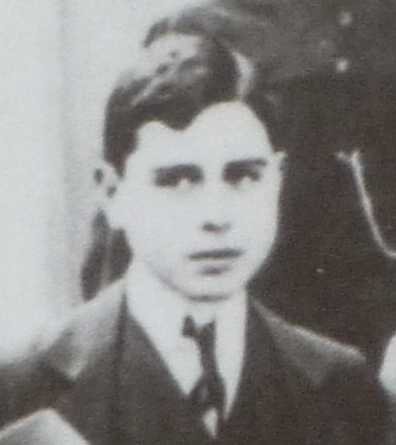
The Jewish population of Marseille grew throughout the 19th century. From 440 in 1808, it rose to 900 in 1831, 2113 in 1861 and 2557 in 1866, two years after the inauguration of the Grand Temple on rue Breteuil. Following a period of stagnation in the last decades of the 19th century, the Jewish population of Marseilles reached 2,500 in 1897.
Nevertheless, this presence was reinforced between the wars. First of all, with the arrival of many Jews from the former Ottoman Empire, then with refugees from Germany and Eastern Europe fleeing the rise of Nazism. Albert Cohen dedicates many pages to the city that welcomed him as a child in Nailcruncher (Mangeclous), Book of My Mother and O Humans My Brothers, whether it’s his glorious character Scipion, sweet moments on the Canebière, or his first confrontation with anti-Semitism.
Marseille became one of the cities of refuge in the south of France following the 1939 occupation. In 1942, up to 40,000 Jews were reported to have taken refuge there, helped in large part by numerous French associations such as the OSE, and American ones such as the Joint.
During the first three years of the war, Jews fell victim to the actions of collaborationist movements: store looting in 1940 and an attempted attack on the synagogue in 1941.
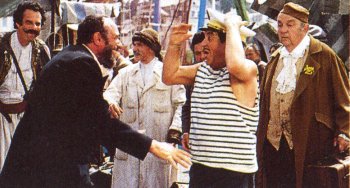
Jews joined the Resistance in large numbers and were very active when the Germans invaded Marseille. Among them was Maurice Korzec’s network (1924-1943), which organized numerous sabotages and attacks against German troops, and was tortured and shot by the occupiers. A major round-up took place on the night of January 23-24, 1943, resulting in the arrest of 6,000 people, mainly Jews. Based in Marseille, American journalist Varian Fry organized the rescue of several thousand Jews and anti-Nazi activists. The Transatlantic series, released by Netflix in 2023, tells this story.
By the time Marseille was liberated, the Jewish population had dwindled to just 12,000. The community slowly rebuilt itself, led by Rabbi Israël Salzer. As in other French cities, the demographic trend was driven by the national baby-boom, but also by the arrival of Jews from North Africa following decolonization. One of the places to visit is the Memorial for the repatriates of Algeria , a monument in the shape of a propeller created by the sculptor César, with a magnificent view of the sea crossed by these repatriates sixty years ago. According to a 1970 study by the Fonds Social Juif Unifié, the Jewish population of Marseilles numbered 65,000 at the time.
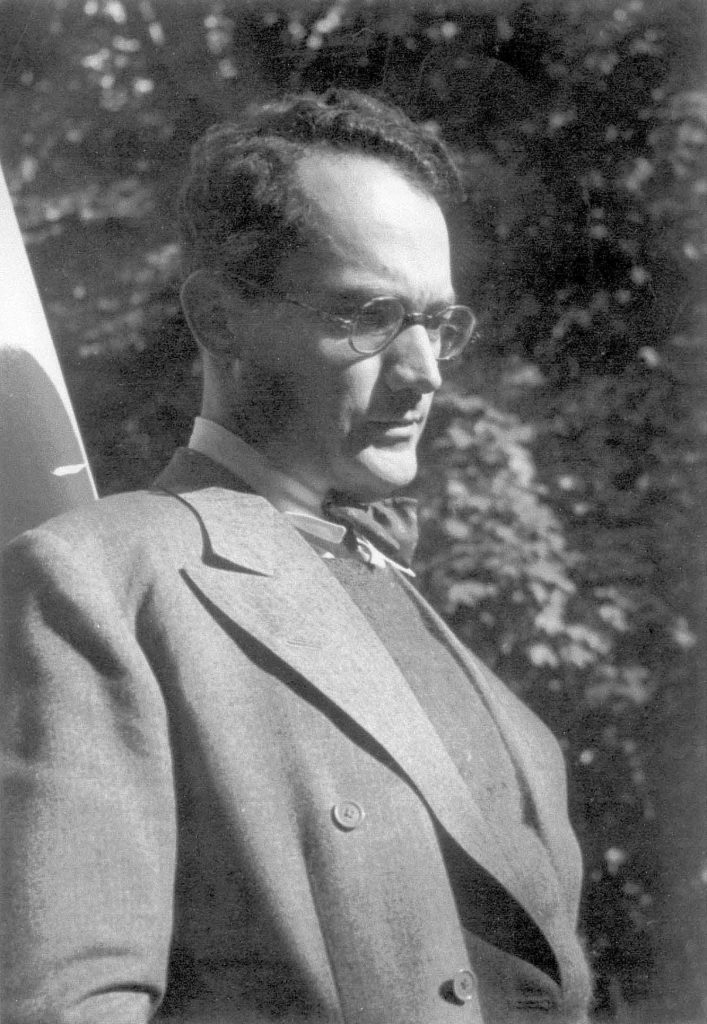
It was a very heterogeneous community, with synagogues of very different rites: Tunisian, Algerian, Moroccan, Egyptian, Greek, Comtadin… Among Marseille’s synagogues is Tiféreth Israël , nicknamed La Pyramide for its astonishing architecture. In Marseille’s northern district, the Yavné synagogue and community center is located next to the school of the same name. A large complex that remains very active today. Most Jews lived in three districts: the city center around the Grand Temple, the Quartier Nord – La Rose where the prestigious Yavné school is located, and the Sainte-Marguerite district.
There are three main streams of Judaism in Marseille: consistorial, non-consistorial Orthodox and liberal. The Union Libérale Israélite de France dates back to 1907, when it was founded by Rabbi Louis-Germain Lévy and Salomon Reinach. The main consistorial synagogue is on rue Breteuil, which also runs a community center and the magazine Haboné. The Massorti synagogue Judaïca was inaugurated in 2003.
In the 1980s, there were also around twenty Orthodox synagogues in Marseille. Social institutions such as the FSJU, CASIM, L’ORT, OPEJ and Coopération féminine were also very active at the turn of the 21st century. Also very active, the Edmond Fleg Center , organizing many cultural events.
In 2015, according to an American study, there were 70,000 Jews in Marseille, making it the third largest community in Europe after Paris and London. Relations between Jews and Muslims are harmonious in Marseille, and the number of anti-Semitic acts has been lower than in other French cities since the upsurge in such acts in 2000.
In January 2023, the City of Marseille organized a commemoration of the 80th anniversary of the raids on the Vieux-Port, the Opera and the destruction of the Vieux-Quartiers. There’s also a square commemorating the night of January 23, 1943.
Sources : « La Communauté juive à Marseille » by Carol Iancu, « Les juifs de Marseille au XIVe siècle » by Juliette Sitbon, Encyclopaedia Judaica.